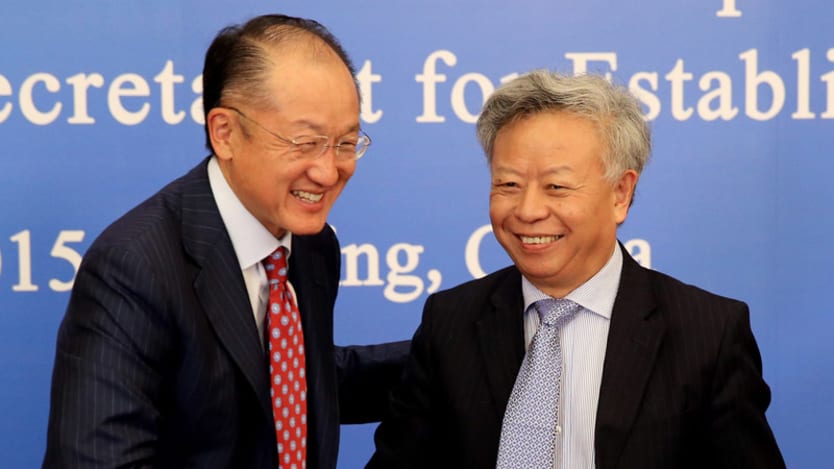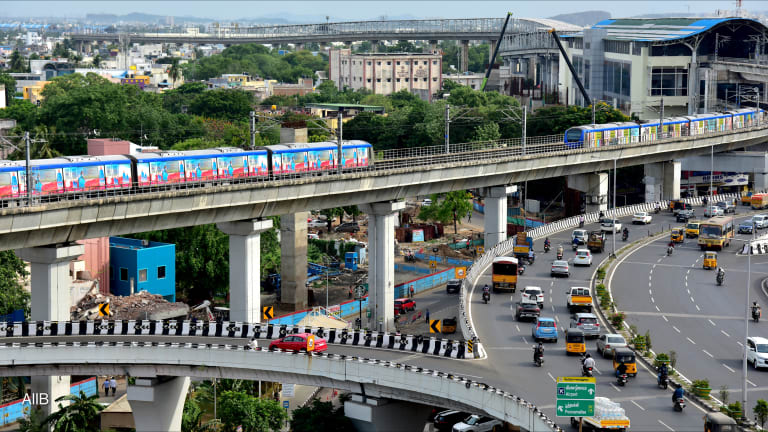
The Asia-Pacific region may have marked a turning point in multilateral development financing on June 29, 2015. On that day, 50 countries signed the articles of agreement of the $50 billion, China-led Asian Infrastructure Investment Bank. While there is a lot of excitement about the potential of this new multilateral financing institution, and much discussion of its potential role in addressing Asia’s infrastructure gap, the focus lately has been more on who will join and who will not than on what AIIB will do.
Since China’s President Xi Jinping announced in 2013 the rising world power’s intention to launch a bank to address Asia’s infrastructure needs, several countries have been weighing the pros and cons of becoming part of what many see as an attempt by China to counterbalance the role of Western countries in other multilateral economic institutions. Indeed, AIIB is often regarded as a potential competitor to the International Monetary Fund, the World Bank and the Asian Development Bank, which many would claim are dominated by American, European and Japanese interests.
As of now, AIIB has approved 57 countries as potential founding members. Apart from China, which will have a leading role, founding members include Bangladesh, Cambodia, India, Indonesia, Mongolia, Myanmar, Pakistan, Singapore and South Korea, as well as Australia, Brazil, France, Germany, Spain and the United Kingdom. At last month’s signing ceremony, seven of these 57 countries delayed their signing of the agreement, among them three Asian nations: Malaysia, the Philippines and Thailand. The United States and Japan, two of the world’s biggest economies, decided not to join.
China will be the largest shareholder, with 26.06 percent of the votes, giving it an effective veto over major decisions, followed by India with 7.5 percent and Russia with 5.92 percent; however, it is expected that all founding members will have the right to create the governance and operational rules of the bank. This important prerogative is one argument advanced by founding members to justify their willingness to be part of this initiative from the beginning rather than to adopt a wait-and-see attitude. Indeed, while there is little argument about Asia’s need for infrastructure, there is much concern over how this need will be addressed by a new organization with no history and in which the rules of governance, criteria for selecting projects and environmental standards are still being developed.
The need is certainly enormous. In a region that is home to the world’s fastest-growing economies, the infrastructure investment gap has been estimated at $8 trillion between 2010 and 2020, according to ADB figures. The emphasis on trade, regional economic cooperation and connectivity to sustain high growth rates in the future calls for huge investment efforts from governments — in hard infrastructure, such as roads, railways, harbors, electricity and telecommunications, but also in “soft” components, such as policies and regulations to ensure investments are efficient and yield positive results. AIIB’s intention to support this much-needed infrastructure development is therefore welcomed both by governments and by businesses managing ever-expanding regional and global supply chains.
The China-led AIIB also represents a new, distinctively Asian development tool, bringing regional know-how and expertise to the problem of matching the supply of infrastructure to specific regional needs. This newcomer development actor may also provide opportunities for collaboration with existing multilateral agencies. IMF Managing Director Christine Lagarde, speaking at the opening of the China Development Forum in Beijing earlier this year, said IMF and the World Bank would be “delighted” to cooperate with AIIB.
But challenges are also numerous. While China likes to present this initiative as a “win-win” situation for Asia, there are concerns that the new bank may cut corners on environmental, social and anti-corruption standards. It is, in fact, anticipated that loans will be made at commercial rates with few or no noneconomic conditionalities, such as environmental protection. Moreover, AIIB will differ from an organization like ADB by focusing on building infrastructure rather than prioritizing poverty reduction. There is also a risk of misallocation of funds to support megaprojects that have little impact on poverty or inclusive economic growth. Finally, the task of leading a complex, multilateral organization spanning an array of national interests will not be easy.
There is no doubt AIIB will give China greater influence within the region and beyond. When calling AIIB the “new type of multilateral bank for the 21st century,” Chinese Finance Minister Lou Jiwei made no secret of Beijing’s intention to play a more predominant role in Asia. However, the question is not whether AIIB will give a greater role to China in the region, but whether the best way to respond to this development is to join it or to stand apart.
As mentioned before, signatory nations will have an opportunity to influence AIIB governance and operations. Nations deciding to stay out of AIIB, like Japan and the U.S., will have no way to express their concerns or influence the development of requirements, criteria and rules of governance. By joining, Japan and the U.S. would also be able to push for good coordination with other multilateral development organizations. Finally, on the inside, they would be in a better position to ensure that AIIB brings truly effective benefits to regional development and regional trade, and to observe carefully how AIIB affects the Trans-Pacific Partnership and its members’ economies.
As Paolo Mauro, senior fellow at the Peterson Institute for International Economics, in his recently published article, “Why America Should Join the AIIB,” pointed out: “Decisions like the one the United States is facing — whether or not to join the AIIB — should not be based on speculation about other countries’ motivations, but rather on an estimation of what can be accomplished by choosing one way or the other.”
Join the Devex community and access more in-depth analysis, breaking news and business advice — and a host of other services — on international development, humanitarian aid and global health.








